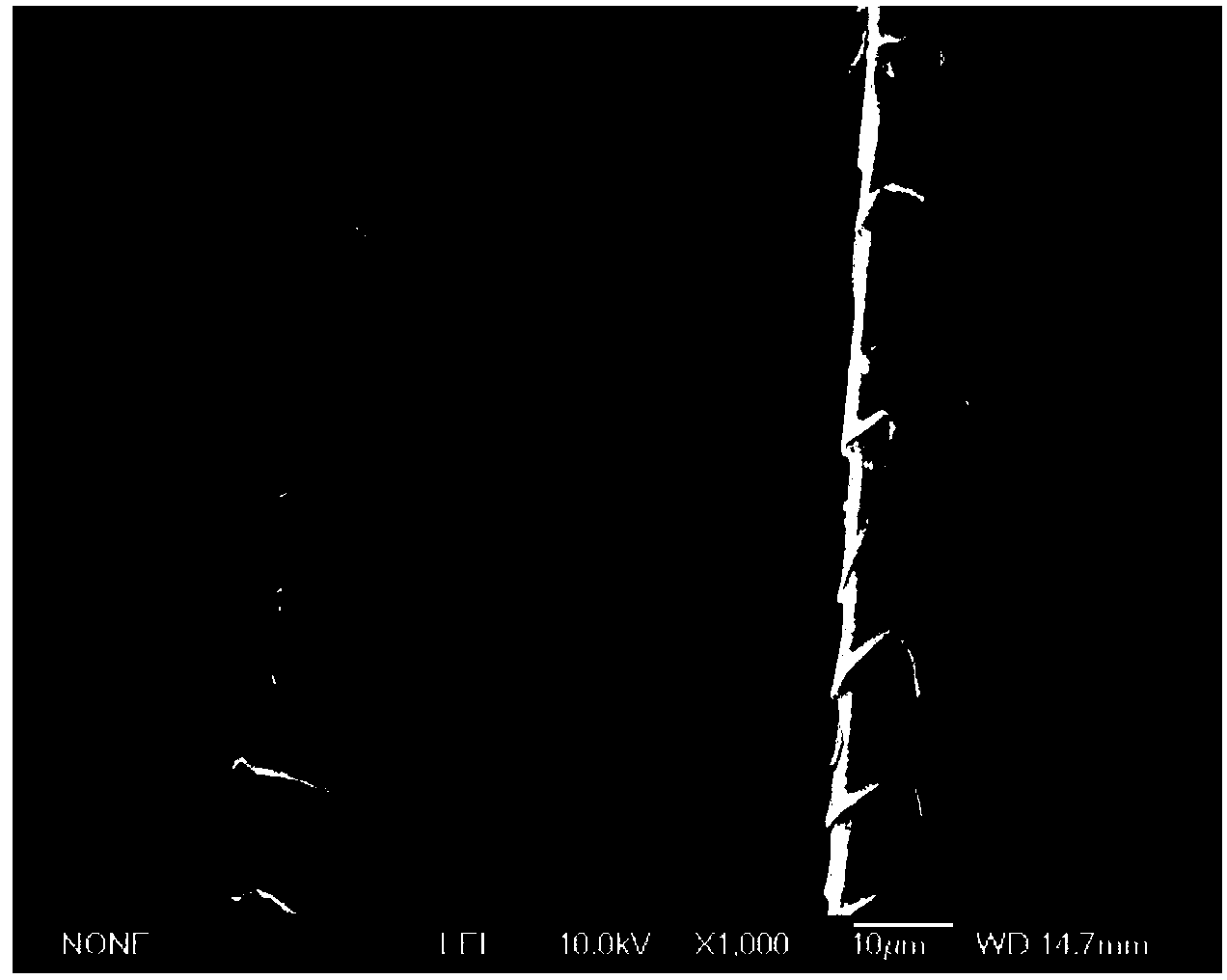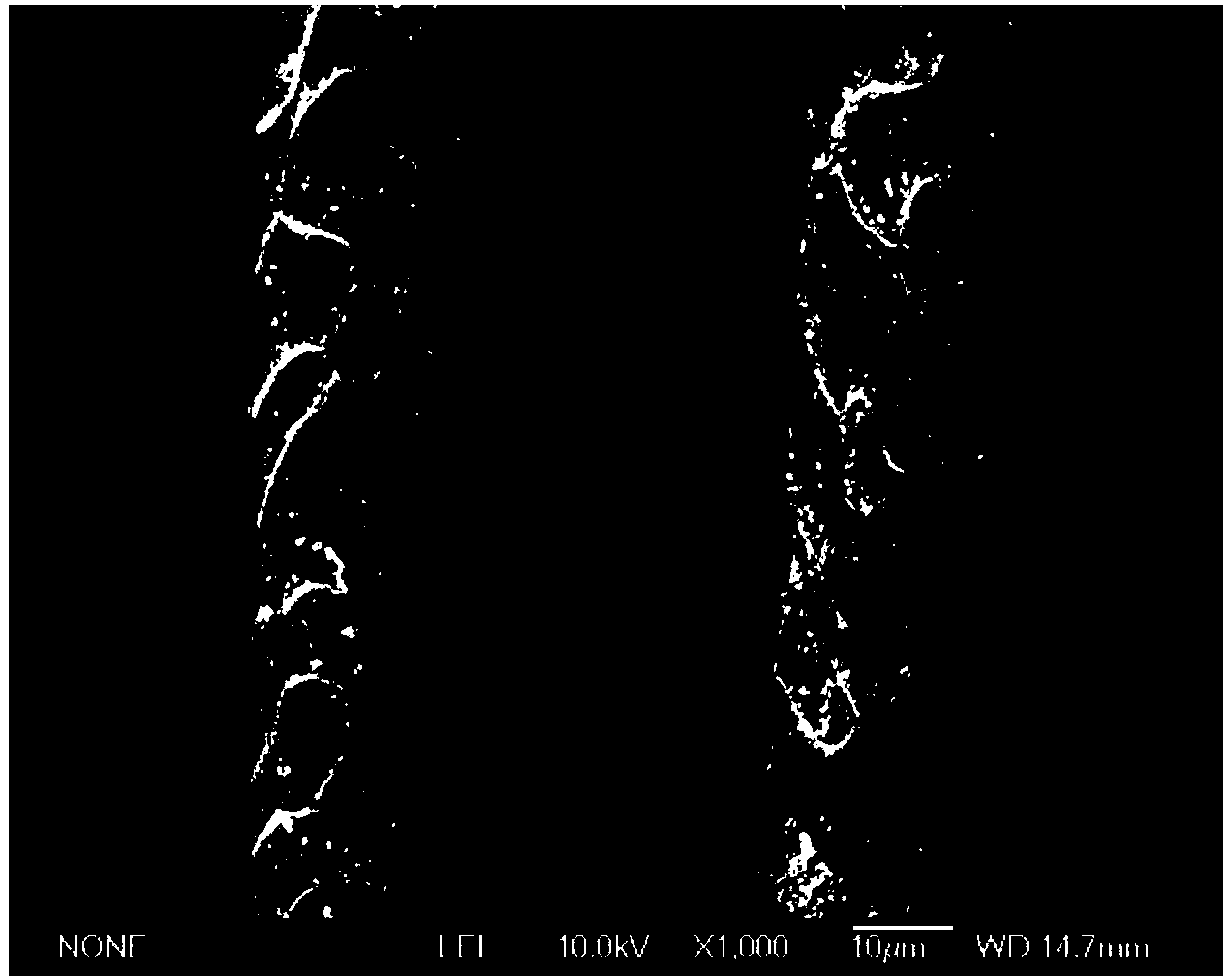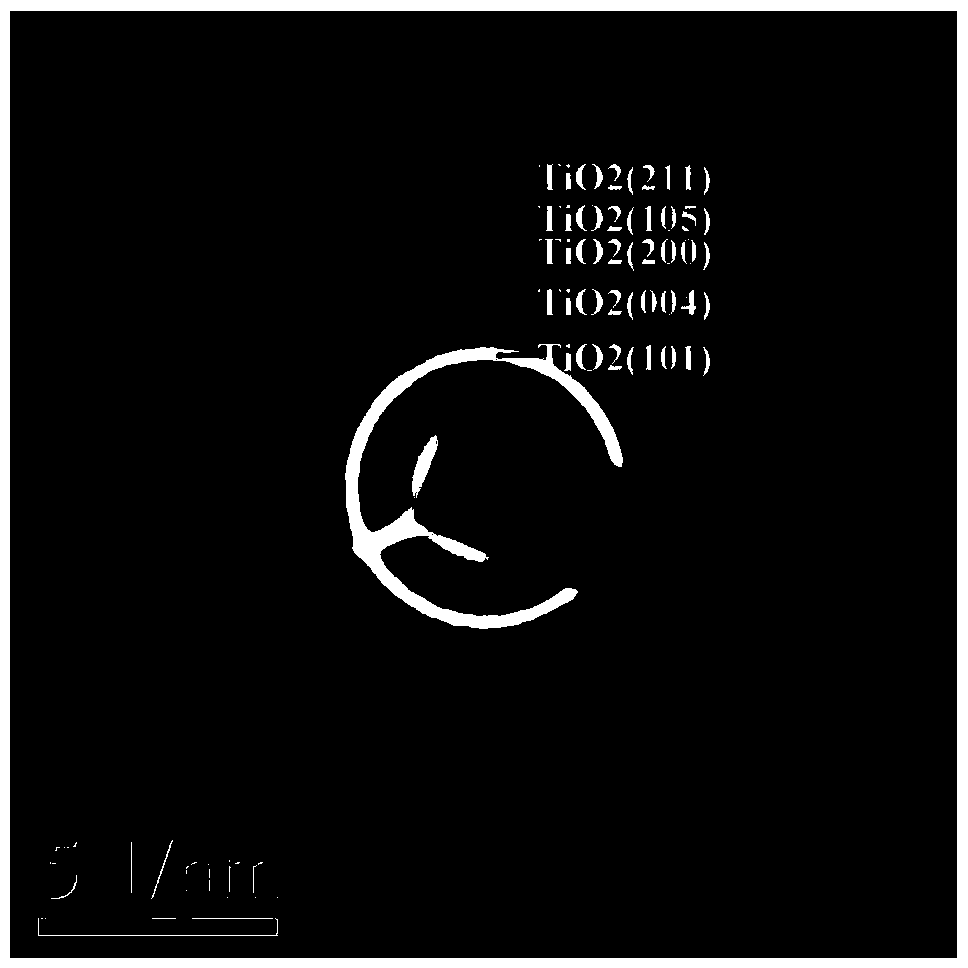Method for modifying surfaces of wool fibers by using tetrabutyl titanate and chitosan
A technology of tetrabutyl titanate and wool fiber, which is applied in fiber treatment, animal fiber, textiles and papermaking, etc., can solve the problems of wool fiber dyeing dark color, low color fastness to sunlight, and poor antibacterial property, and achieves Solve dyeing difficulties, save raw materials, and reduce strength damage
- Summary
- Abstract
- Description
- Claims
- Application Information
AI Technical Summary
Problems solved by technology
Method used
Image
Examples
Embodiment 1
[0082] Weigh 0.5g wool fiber, weigh 0.125g sodium carbonate according to the quality of wool fiber, measure 250mL deionized water, pour 0.125g sodium carbonate into 250mL deionized water, fully dissolve sodium carbonate in deionized water, and configure Sodium carbonate solution with a mass volume percentage concentration of 0.5g / L, put 0.5g of wool fiber into the sodium carbonate solution prepared in the middle, and soak the wool fiber in the sodium carbonate solution for 10min at 40°C to complete the treatment of wool fiber. The pretreatment of the pretreated wool fiber was taken out, and then the pretreated wool fiber was washed with 30°C acetone and 40°C absolute ethanol solution for 5 minutes respectively, and then rinsed with deionized water once, and finally the washed wool fiber The wool fiber was dried at 70°C; 0.1g of chitosan with a deacetylation degree of 65% was weighed and added to an acetic acid solution with a mass percent concentration of 1%, and the mass ratio o...
Embodiment 2
[0085] Weigh 0.5g of wool fiber, weigh 0.5g of sodium carbonate according to the quality of wool fiber, measure 250mL of deionized water, pour 0.5g of sodium carbonate into 250mL of deionized water, fully dissolve sodium carbonate in deionized water, and configure Sodium carbonate solution with a mass volume percentage concentration of 2g / L, put 0.5g of wool fiber into the sodium carbonate solution prepared in the medium, and soak the wool fiber in the sodium carbonate solution for 30min at 50°C to complete the treatment of wool fiber Pretreatment: take out the pretreated wool fibers, and then wash the pretreated wool fibers with 40°C acetone and 50°C absolute ethanol solutions for 15 minutes respectively, and then rinse with deionized water for 3 times, and finally wash the wool fibers The fibers were dried at 80°C; 0.05g of chitosan with a degree of deacetylation of 95% was weighed and added to an acetic acid solution with a mass percent concentration of 5%, and the mass rati...
Embodiment 3
[0088] Weigh 0.5g of wool fiber, weigh 0.3g of sodium carbonate according to the quality of wool fiber, measure 200mL of deionized water, pour 0.3g of sodium carbonate into 200mL of deionized water, fully dissolve sodium carbonate in deionized water, and configure Sodium carbonate solution with a mass volume percentage concentration of 1.5g / L, put 0.5g of wool fiber into the sodium carbonate solution prepared in the medium, and soak the wool fiber in the sodium carbonate solution for 30min at 60°C to complete the treatment of wool fiber. The pretreatment of the pretreated wool fiber was taken out, and then the pretreated wool fiber was washed with 50 ℃ acetone and 60 ℃ absolute ethanol solution for 15 minutes respectively, and then rinsed with deionized water for 3 times, and finally the washed wool fiber The wool fiber is dried at 90°C; 0.06g of chitosan with a deacetylation degree of 85% is weighed and added to an acetic acid solution with a mass percent concentration of 3%, ...
PUM
 Login to View More
Login to View More Abstract
Description
Claims
Application Information
 Login to View More
Login to View More - R&D
- Intellectual Property
- Life Sciences
- Materials
- Tech Scout
- Unparalleled Data Quality
- Higher Quality Content
- 60% Fewer Hallucinations
Browse by: Latest US Patents, China's latest patents, Technical Efficacy Thesaurus, Application Domain, Technology Topic, Popular Technical Reports.
© 2025 PatSnap. All rights reserved.Legal|Privacy policy|Modern Slavery Act Transparency Statement|Sitemap|About US| Contact US: help@patsnap.com



